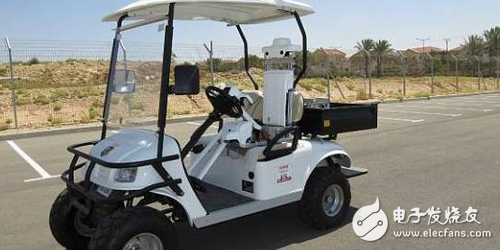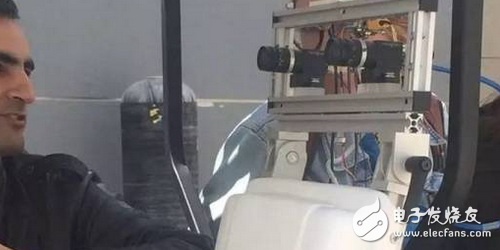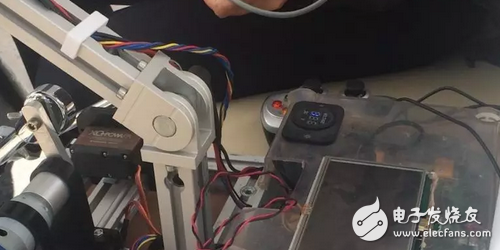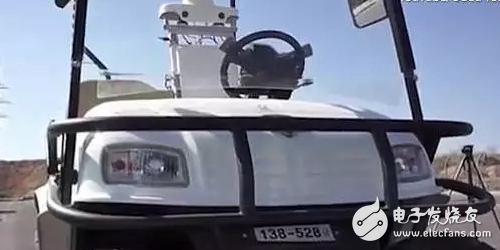Uber, Google, Apple, GM, Ford, Tesla... When these high-tech companies and car manufacturers are investing heavily in developing smart driving technologies that allow cars to start, Israeli researchers have taken a different approach and invented a The robot driver who is said to be able to control the car. The most important thing is that this "driver" is lighter and cheaper than an expensive self-driving car. Would you be excited?

The robot, called IVO, is a robot that is developed by Israeli developers. Data map
The schemes of high-tech manufacturers mostly install laser radar and cameras on the vehicle to identify surrounding objects, and issue instructions to the vehicles through the driving computer. But the driver is still sitting in the driver's seat as the last barrier to driving safety. The robot driver is a plug-in portable robot prototype in the Li box, which can replace the human driver to sit in the driver's seat, control the vehicle, and achieve automatic driving.

The IVO is a portable robot that folds into a suitcase. Data map
Overall, the robot is simple in shape and weighs only 15 kg. It can be placed in a suitcase after folding; it can be mounted on the driver's seat of any car when needed. The robot is equipped with an automatic driving system called "Intelligent Vehicle Driving System" that monitors road conditions, avoids obstacles and pedestrians, and controls speed and direction through cameras, motion sensors, instrumentation and a complex computer vision algorithm.

IVO robots include simple accelerometers and other sensors that can be mounted on any type of car. Data map
The inventor of the robot is called Oded Yechiel, the device called "IVO" by Yechiel (short for Intelligent Vechiel Operator, intelligent car operator), equipped with a small number of cameras, several simple motion sensors to sense the outside world, and use external machinery. The device brakes on the brakes, throttles and turns the steering wheel. The system compensates for its relatively simple sensors through highly sophisticated computer algorithms.
At present, the IVO cost is 1,600 US dollars, about 11043.4 yuan, and it still looks like a product in the laboratory. For the price, Yechiel estimates that it can be reduced in mass production, and there is currently no information on the market selling price. In contrast, Mobileye, which provided Tesla with an automated assisted driving solution, sold to the average consumer and sold on a finished vehicle for about $1,000. The price is lower than the IVO and it feels safer because it is an auxiliary device and the person is still in the driver's seat.

IVO robot test video screenshot, data map
Currently, they have tested the robots in Israel to drive golf carts in the parking lot. They are currently working on how to reduce the weight of the robots. They plan to complete the beta test before the end of this year and then seek commercial development.
So far, IVO has underperformed the products of companies such as GoogleWaymo and Ford. Yechiel and team members are improving computer vision algorithms to observe common roads and highways, as well as to accurately identify obstacles, traffic conditions and pedestrians under conditions of dramatic light changes. Yechiel said that designers expect to complete beta testing by the end of the year, after which they will seek greater investment in the market development of autonomous driving robots.
The biggest problem at present is that the driver can be acquainted with the co-pilot and drive only by robot. Can the market recognize it? This is something that any car owner will have to doubt. As well, the Yechiel team also needs to test more of their robots, use a large amount of valid data to convince the market, and many of its competitors have recorded millions of miles of driving records.
Micro Air Motor,Micro Motors,Micro Pneumatic Motor,Micro Air Motor With Brake
RUDONG HONGXIN MACHINERY CO.,LTD , https://www.rdhxmfr.com
